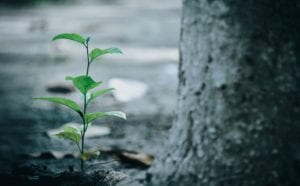There is no vaccine for the climate: connecting Covid-19 to climate change

This sense of optimism seemed to be supported by palpable changes in our environment. Global emissions were down 7%; flights had dropped 96%; there were dolphins in Venice! These cracks of light in the gloom sustained us, made us feel as if the pandemic was really for something (beyond, well, surviving a pandemic). That is, there seemed to be a goal we were working towards, by which we could orientate our present reality, giving it some sense. And this was important. Hope sustains us in times of difficulty. It is the voice which reminds us no pain lasts forever, that the sun also rises.

What happened here? Were we deluded to dream of a better future? Did we imagine something that never really could have been?
No. It is never wrong to hope. And it did sustain us in those interminable lockdown months. Our error was in putting our hopes on an external event, in this notion that Covid had come to save us, as if it were some sort of geo-biological defense mechanism, the natural arc of history correcting itself. But an event can only be as significant as the responses which it generates. Which is to say, the significance of the pandemic was in the million daily acts of kindnesses which it elicited: the grocery collections for elderly and infirm neighbours, the selfless bravery of the frontline workers putting themselves and their families at risk for the greater good, the proactiveness of those who organised events and other forms of support for the most vulnerable. Without even realising it, without waiting for a sunny day where we would have the type of society that we wanted, we were building it in front of our very eyes. One based on solidarity, equality and community concern (all of which happen to be the very characteristics needed to pull us out of the climate crisis – since we are all sharing increasingly limited space and resources on this planet). What we needed wasn’t a deus ex machina to solve the problem. What we needed was to see that the world around us is a result of the values we hold as a society, and it is this we need to change. This means remembering that the same essential ties that bound us through the pandemic persist and it is along these ties that change is effected, not some grand narrative happening out there. After all, the planet doesn’t care – it is humans that will perish, not nature.



Ronan Loughney – Ecologi – 1 June 2021
If this blog has raised any questions why don't we have a quick chat?


MD & Certified Financial Planner
A brief meeting might be of interest, especially if you’re unsure just how wealth management and financial planning could help you.
It would only require the investment of an hour or so of your time, and the coffee’s not bad either.
